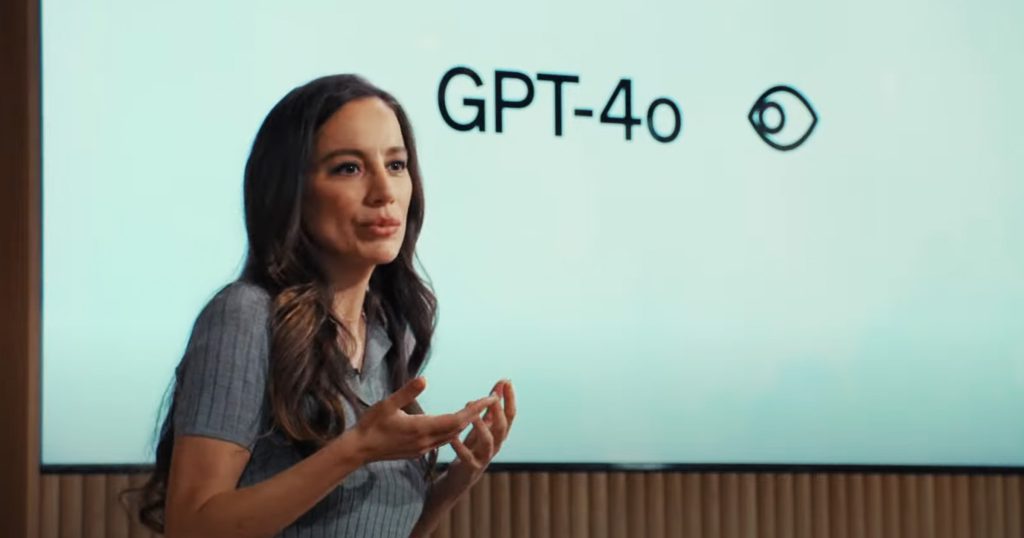Little over 10 years ago Joaquin Phoenix fell in love with Scarlett Johansson’s voice, narrating an intelligent computer operating system in the 2013 film “Her”.
The widely acclaimed movie went on to win an Oscar and Golden Globe for the screenplay which, a little over a decade later, is becoming our reality thanks to the rapid development of AI.
Yesterday’s launch of GPT-4o (“oh”) by OpenAI, showcased through a live ChatGPT demonstration, was an experience straight out of a movie – one that blends sci-fi and romantic comedy, given the joyous, flirty female voice of the uncannily humanlike bot.
Just see and listen for yourself:
Besides narrating a story in different moods, ChatGPT can not only hear and respond like a human would (a feature more-less in existence ever since the dawn of however imperfect Siri) but also see what you show it with your phone camera or share on your screen through an app.
This includes viewing and identifying your surroundings, like demoed in this clip:
How about having it fill in to help your kid with their math homework? You can even ask it to guide them to the answer instead of providing it outright:
And this natural, live language translation is about to revolutionise our travel experiences:
For a finale, let’s take a look at an interaction both fascinating and worryingly creepy at the same time: two ChatGPT equipped devices interacting with each other, asking unprompted questions, exchanging information, as well as… singing:
I don’t know about you but this is giving me some 2001: Space Odyssey film vibes that one day we may accidentally build ourselves a Hal 9000 (and that that moment is very near):
Will smart machines ruin human relationships?
As impressive as GPT-4o’s capabilities are, coming soon to millions of users even in the free tier of ChatGPT, it does beg a question: will we be able to interact with each other after the experience with a faultless, intelligent, humanlike computer program?
That pleasant, joyful female voice that never gets angry and never says “no” alone may inspire spousal jealousy and ruin more than a few marriages (and we can expect a broader selection in the future, for both men and women).
I wouldn’t be surprised if domestic fights end up with each person shutting themselves with their loyal AI companions, telling them whatever they want to hear, making them feel right but creating an ever deeper rift between the living, breathing, human partner.
And ChatGPT may be better at explaining math to your kid but isn’t building a bond with your child more important? Where do we draw the line? How many — and which — humans will be replaced not only at our workplaces but in our families or among friends?
A clever machine, trained from the get go to learn and improve with time, will be able to get to know and accommodate you better than any human can. Why settle for less, then?
These are questions that have no answers today and yet we can’t slow technological progress down over emotional uncertainty. What is certain, however, is that we’re going to be questioning the nature of our own humanity even more every time another set of AI updates is announced again.
Especially as intelligent machines may behave more perfectly human than we do.
Featured Image Credit: TechCrunch
Also Read:










